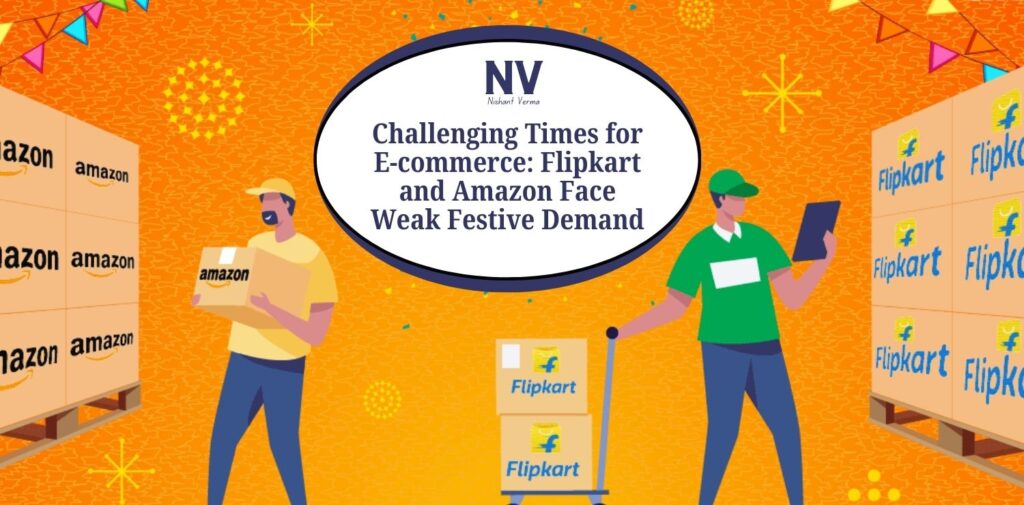As the festive season unfolds in India, e-commerce giants Flipkart and Amazon are experiencing a surprising downturn in consumer demand. Traditionally, this period is marked by bustling online shopping, heavy discounts, and record sales figures. However, recent reports indicate that the expected festive surge is failing to materialize, casting a shadow over what should be a profitable season.
Understanding the Festive Demand Dip
This year, both Flipkart and Amazon are witnessing a noticeable drop in sales compared to previous years. Several factors contribute to this decline, starting with the changing consumer behavior and economic environment.
- Inflation and Economic Pressures: With rising inflation, consumers are becoming more cautious about their spending. Many are prioritizing essential goods over discretionary purchases, leading to a significant drop in demand for electronics, fashion, and other categories that typically see a spike during festive sales.
- Credit Card Defaults at Record Levels: The financial landscape is also shifting. Credit card defaults have reached alarming levels, with reports suggesting nearly 70% of iPhone purchases are being made on Equated Monthly Installments (EMIs). This trend indicates that consumers are increasingly relying on credit to finance their purchases, which is not sustainable in the long run. As financial stress mounts, many are opting to hold back on spending altogether.

The EMI Dilemma
The trend of using EMIs to purchase expensive items, such as iPhones, reflects a broader issue. While it provides immediate gratification, this approach can lead to long-term financial strain. As more people accumulate debt, the risk of default increases, which could further exacerbate the current market challenges.
- Rising Debt Levels: With many consumers stretched thin due to mounting debt, the tendency to splurge during the festive season is being reconsidered. This shift could lead to lower sales volumes for companies that rely heavily on festive shopping.
- Consumer Sentiment: People are becoming more aware of their financial situations and are thus prioritizing savings over spending. This change in mindset can significantly impact the overall market and the strategies employed by e-commerce platforms.

Impact on E-commerce Strategies
As demand wanes, both Flipkart and Amazon are forced to reassess their strategies. Here are some potential steps they might take:
- Targeted Promotions: Rather than broad discounts, focusing on targeted promotions that cater to consumer needs could help stimulate sales. For instance, offering discounts on essential items or creating bundle offers may encourage more purchases.
- Flexible Payment Options: To tackle the EMI issue, companies can explore more flexible payment options or provide additional financial literacy resources to help consumers make informed choices about credit use.
- Enhanced Customer Engagement: E-commerce platforms should invest in customer engagement strategies to build loyalty and trust. Personalized marketing, improved customer service, and value-driven content can help keep consumers interested.
The Road Ahead
While the festive season is typically a time of growth for e-commerce, this year presents unique challenges. The combination of weak demand, rising debt levels, and changing consumer preferences requires both Flipkart and Amazon to adapt quickly.
In the coming weeks, the industry will closely watch how these platforms respond to the shifting landscape. Whether through innovative marketing strategies or new financial offerings, the ability to pivot and adapt will determine their success this season.
Conclusion
The current scenario poses a wake-up call for e-commerce giants. As they navigate through weak festive demand, rising credit card defaults, and a consumer base that is becoming more financially savvy, their strategies must evolve. Understanding the challenges ahead will be crucial in sustaining growth and retaining customer loyalty in a competitive market. This festive season might not be as bright for Flipkart and Amazon, but with the right strategies in place, they could turn challenges into opportunities for the future.




